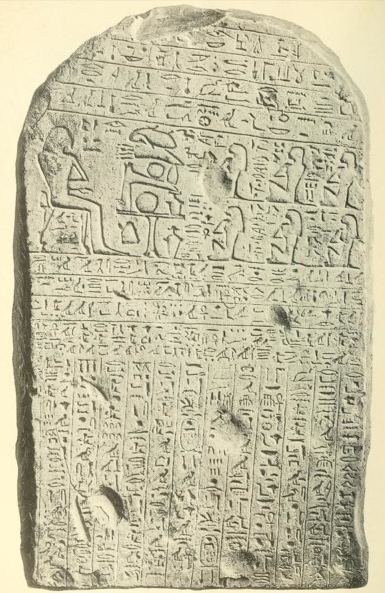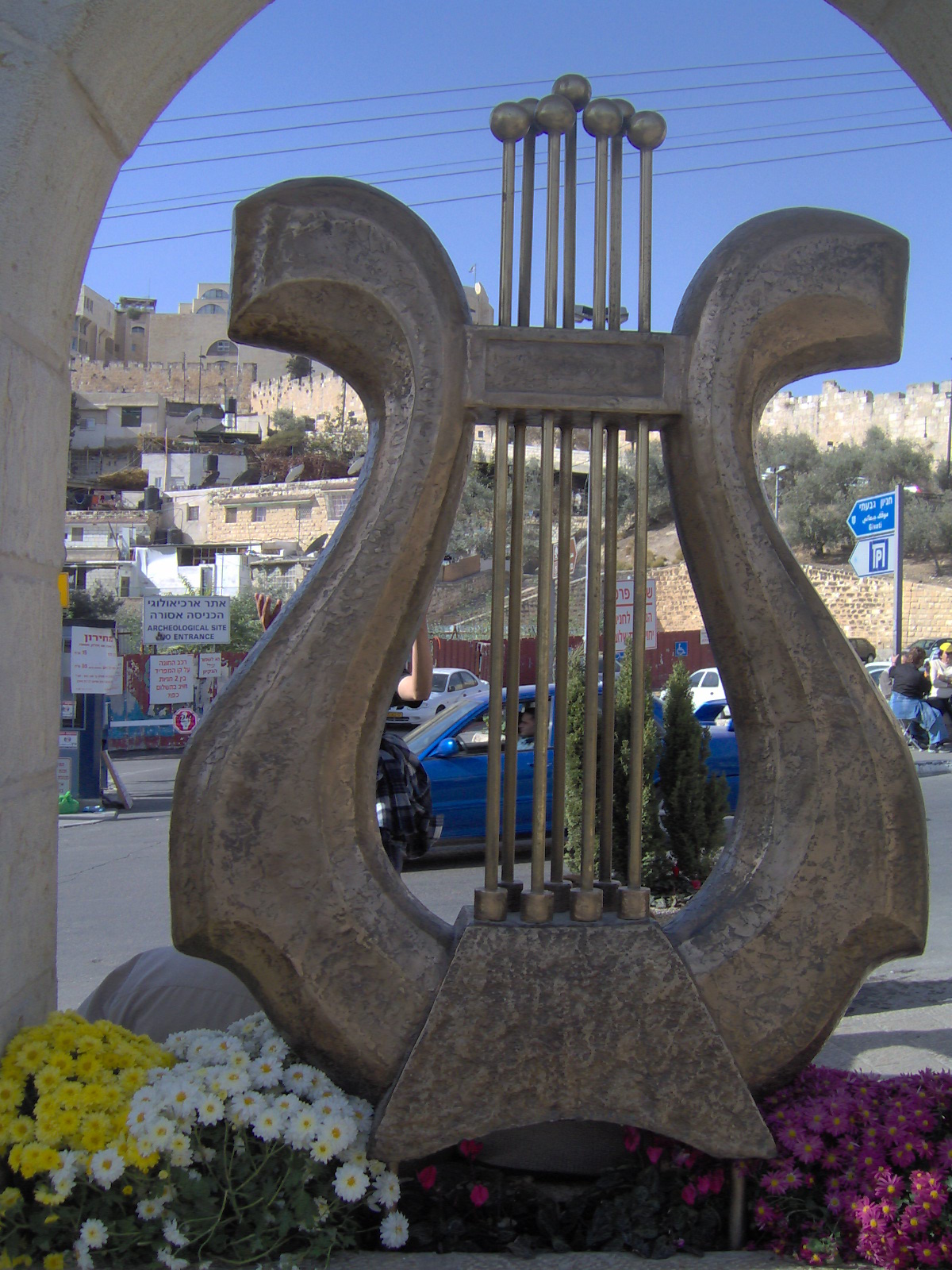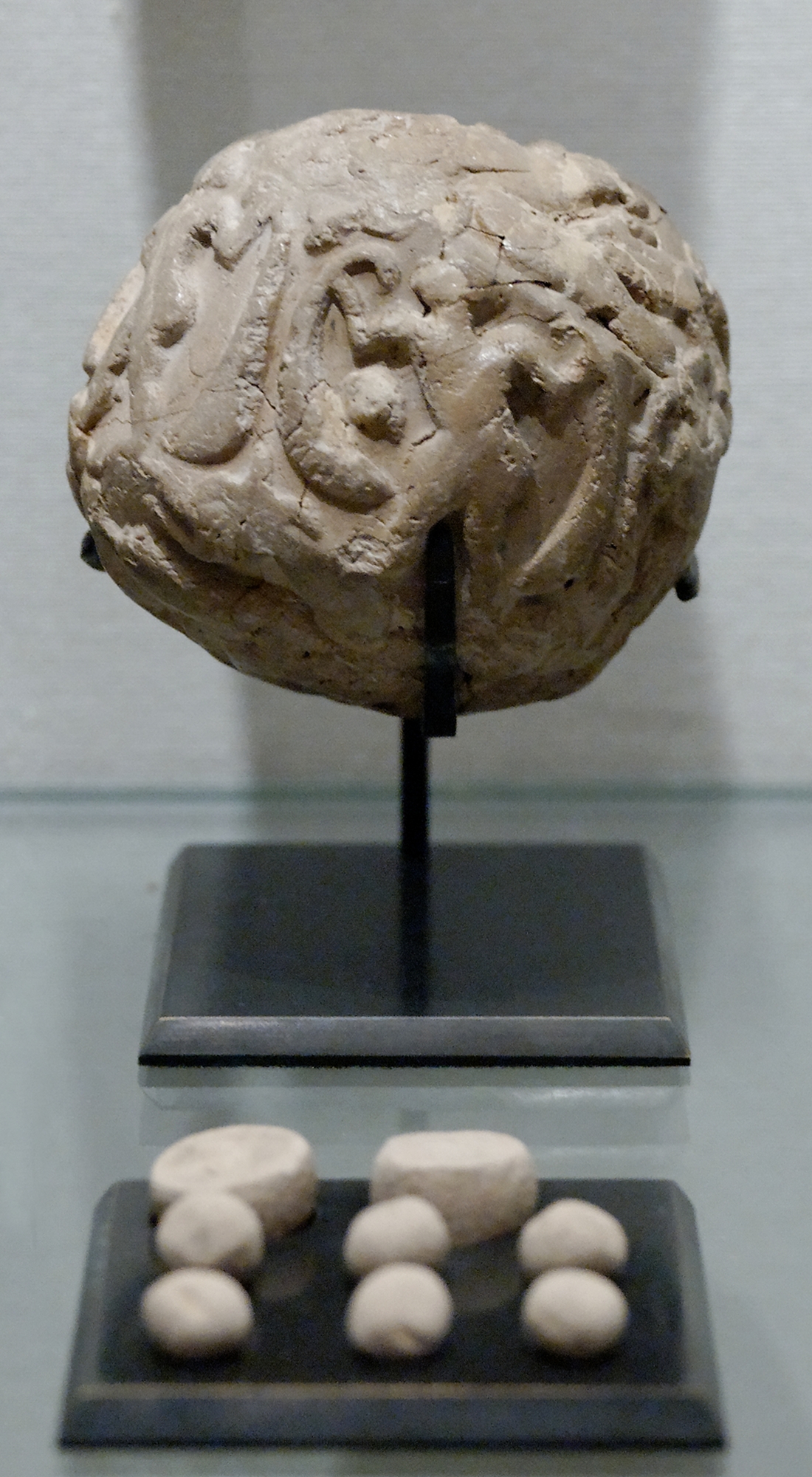|
Gedaliah, Son Of Pashhur
Gedaliah, son of Pashhur appears in the Book of Jeremiah of the Hebrew Bible, Judaism's Tanakh, and Christianity's Old Testament. He is described as one of the political opponents of Jeremiah, one of those who appealed to King Zedekiah to have Jeremiah executed because of his prophecies that Jerusalem and the Temple would be destroyed by the Babylonians due to the wickedness of the Jews: 1 And Shephatiah the son of Mattan, and Gedaliah the son of Pashhur, and Jucal the son of Shelemiah, and Pashhur the son of Malchiah, heard the words that Jeremiah spoke unto all the people, saying: 2 Thus saith the LORD: He that remaineth in this city shall die by the sword, by the famine, and by the pestilence; but he that goeth forth to the Chaldeans shall live, and his life shall be unto him for a prey, and he shall live. 3 Thus saith the LORD: This city shall surely be given into the hand of the army of the king of Babylon, and he shall take it.' 4 Then the princes said unto the king: 'Le ... [...More Info...] [...Related Items...] OR: [Wikipedia] [Google] [Baidu] |
Seal Of Gedaliah, Keller's The Bible As History In Pictures Wellcome L0005978
Seal may refer to any of the following: Common uses * Pinniped, a diverse group of semi-aquatic marine mammals, many of which are commonly called seals, particularly: ** Earless seal, also called "true seal" ** Fur seal ** Eared seal * Seal (emblem), a device to impress an emblem, used as a means of authentication, on paper, wax, clay or another medium (the impression is also called a seal) * Seal (mechanical), a device which helps prevent leakage, contain pressure, or exclude contamination where two systems join ** Hermetic seal, an airtight mechanical seal * Security seals such as labels, tapes, bands, or ties affixed onto a container in order to prevent and detect tampering Arts, entertainment and media * ''Seal'' (1991 album), by Seal * ''Seal'' (1994 album), sometimes referred to as ''Seal II'', by Seal * '' Seal IV'', a 2003 album by Seal * ''Seal Online'', a 2003 massively multiplayer online role-playing game Law * Seal (contract law), a legal formality for contracts ... [...More Info...] [...Related Items...] OR: [Wikipedia] [Google] [Baidu] |
Eilat Mazar
Eilat Mazar (; 10 September 195625 May 2021) was an Israeli archaeologist. She specialized in Jerusalem and Phoenician archaeology. She was also a key person in Biblical archaeology noted for her discovery of the Large Stone Structure, which she surmised to be the palace of King David. Biography Eilat Mazar was born on 10 September 1956. She was the granddaughter of pioneering Israeli archaeologist Benjamin Mazar, who served as president of the Hebrew University of Jerusalem, and the second cousin of Amihai Mazar, a professor of Archaeology at the Hebrew University as well. She obtained a Bachelor of Arts from that same institution, before joining the excavation team of Yigal Shiloh in 1981 and working there for four years. She was granted a Doctor of Philosophy from Hebrew University in 1997. Her thesis was written on the culture of Phoenicia, based on the excavations she undertook in Achziv. Mazar had one daughter from her first marriage, which ended in divorce. Her ... [...More Info...] [...Related Items...] OR: [Wikipedia] [Google] [Baidu] |
List Of Inscriptions In Biblical Archaeology
The following is a list of inscribed artifacts, items made or given shape by humans, that are significant to biblical archaeology. Selected artifacts significant to biblical chronology This table lists inscriptions which are of particular significance to the study of biblical chronology. References are from ANET and COS and link to editio princeps (EP), if known. Egyptian Other significant Egyptian artifacts * Execration texts – earliest references to many Biblical locations * Papyrus Brooklyn 35.1446 – A document that lists the names of 45 individuals, including a Canaanite woman named "Šp-ra." Scholars assume that this is a hieroglyphic transliteration of the Hebrew name "Shiphrah," which also appears in Exodus 1:15–21. However, while the name may be related, the document dates to c. 1833–1743 BCE (centuries before the biblical Shiphra would have lived). * Ipuwer Papyrus – poem describing Egypt as afflicted by natural disasters and in a state of chaos. The docum ... [...More Info...] [...Related Items...] OR: [Wikipedia] [Google] [Baidu] |
King Ahaz's Seal
King Ahaz's seal is a bulla (impressed piece of clay) originating from the 8th century BCE. The place of discovery of this seal is unknown, and it is currently part of Shlomo Moussaieff's private collection. The seal contains an ancient Hebrew inscription mentioning the name of Ahaz of Judah, as well as the name of his father, Jotham (Jotham), identifying Ahaz as the "king of Judah". The bulla contains a fingerprint which may belong to Ahaz himself. Text Another extra-biblical source regarding the historicity of Ahaz comes from Tiglath-Pileser III, mentioning tributes he received in gold and silver from Ahaz, and from the bulla known as Ushna seal. Authenticity Unprovenanced artifacts that originate in the antiquities market are subject to authentication disputes. The authenticity of ancient bullae has been the topic of scholarly discussion. According to Robert Deutsch, an archeologist who is also the antique dealer who sold the Ahaz bulla, most scholars believe the bulla ... [...More Info...] [...Related Items...] OR: [Wikipedia] [Google] [Baidu] |
The Jerusalem Post
''The Jerusalem Post'' is an English language, English-language Israeli broadsheet newspaper based in Jerusalem, Israel, founded in 1932 during the Mandate for Palestine, British Mandate of Mandatory Palestine, Palestine by Gershon Agron as ''The Palestine Post''. In 1950, it changed its name to ''The Jerusalem Post''. In 2004, the paper was bought by Mirkaei Tikshoret, a diversified Israeli media firm controlled by investor Eli Azur (who in 2014 also acquired the newspaper ''Maariv (newspaper), Maariv''). ''The Jerusalem Post'' is published in English. Previously, it also had a French edition. The paper describes itself as being in the Politics of Israel, Israeli political political center, center, which is considered to be Centre-right politics, center-right by Far-right politics in Israel, international standards; its editorial line is critical of political corruption, and supportive of the separation of religion and state in Israel. It is also a strong proponent of greater in ... [...More Info...] [...Related Items...] OR: [Wikipedia] [Google] [Baidu] |
Jucal
Jehucal or Jucal (Hebrew יְהוּכַל ''Yəhūḵal'') is a Hebrew name referring to a particular person in the Hebrew Bible. Using the biblical source Jeremiah 37:3 he would have lived around the late 7th century to early 6th century BC. The name was also found in Tell Es-Safi and in one of the Arad letters. Biblical accounts Jehucal is only mentioned in chapters 37 and 38 of the Book of Jeremiah: Jeremiah 37:3 :''And Zedekiah the king sent Jehucal the son of Shelemiah, and Zephaniah the son of Maaseiah the priest, to the prophet Jeremiah, saying: 'Pray now unto the LORD our God for us'' Jeremiah 38:1 : ''Now Shephatiah the son of Mattan, Gedaliah the son of Pashhur, Jucal the son of Shelemiah, and Pashhur the son of Malchiah heard the words that Jeremiah had spoken to all the people, saying'' Archeology Excavations conducted by the Ir David Foundation Ir David Foundation or City of David Foundation, commonly known as Elad l'ad(, an acronym for "אל עיר דו ... [...More Info...] [...Related Items...] OR: [Wikipedia] [Google] [Baidu] |
Temple Mount
The Temple Mount (), also known as the Noble Sanctuary (Arabic: الحرم الشريف, 'Haram al-Sharif'), and sometimes as Jerusalem's holy esplanade, is a hill in the Old City of Jerusalem, Old City of Jerusalem that has been venerated as a Sacred space, holy site for thousands of years, including in Judaism, Christianity and Islam. The present site is a flat plaza surrounded by retaining walls (including the Western Wall), which were originally built by Herod the Great, King Herod in the first century BCE for an expansion of the Second Temple, Second Jewish Temple. The plaza is dominated by two monumental structures originally built during the Rashidun and early Umayyad Caliphate, Umayyad caliphates after Siege of Jerusalem (636–637), the city's capture in 637 CE:Nicolle, David (1994). ''Yarmuk AD 636: The Muslim Conquest of Syria''. Osprey Publishing. the main Qibli Mosque, praying hall of al-Aqsa Mosque and the Dome of the Rock, near the center of the hill, which was com ... [...More Info...] [...Related Items...] OR: [Wikipedia] [Google] [Baidu] |
City Of David (Silwan)
Wadi Hilweh is a neighborhood in the Palestinians, Palestinian Arab village of Silwan, intertwined with an Israeli settlement called the ''City of David''. The neighborhood is called after a section of the Tyropoeon Valley, central valley of ancient Jerusalem, which it straddles. The Silwan area of East Jerusalem was annexed by Israel following the 1967 Six-Day War and 1980 Jerusalem Law, an action not recognized internationally. The international community regards Israeli settlements as illegal under International law and Israeli settlements, international law, although Israel disputes this. The Wadi Hilweh neighborhood stretches over historical Jerusalem's so-called Southeast Hill, extending down from the southern city walls of Old City of Jerusalem, the Old City. According to tradition, Silwan originated at the time of Saladin in the twelfth century on Ras al-Amud, on the southwest slope of the Mount of Olives, then in the early twentieth century it expanded across the Ki ... [...More Info...] [...Related Items...] OR: [Wikipedia] [Google] [Baidu] |
Ir David Foundation
Ir David Foundation or City of David Foundation, commonly known as Elad [El'ad] (, an acronym for "אל עיר דוד", meaning "to the City of David"), is a Jerusalem-based Israeli settler association which aims to strengthen the Jewish connection to Jerusalem, and renew the Jewish community in the City of David (Silwan), City of David, which is also part of the neighborhood of Silwan. The foundation works to achieve its goals by tourism, education, archaeological excavations and obtaining homes in the area to establish a Jewish presence. The Ir David Foundation has been criticized for its archaeological practices and real estate activities. Critics argue that the foundation's archaeological excavations are often carried out with a political agenda, aiming to assert Jewish historical claims over the area at the expense of Palestinian residents. Elad has also been accused of acquiring properties in Silwan, in some cases leading to the eviction of Palestinian families. Backgroun ... [...More Info...] [...Related Items...] OR: [Wikipedia] [Google] [Baidu] |
Bulla (seal)
A bulla (Medieval Latin for "a round seal", from Classical Latin ''bulla'', "bubble, blob"; plural bullae) is an inscribed clay, soft metal (lead or tin), bitumen, or wax token used in commercial and legal documentation as a form of authentication and for tamper-proofing whatever is attached to it (or, in the historical form, contained in it). In their oldest attested form, as used in the ancient Near East and the Middle East of the 8th millennium BC onwards, bullae were hollow clay balls that contained other smaller tokens that identified the quantity and types of goods being recorded. In this form, bullae represent one of the earliest forms of specialization in the ancient world, and likely required skill to create. From about the 4th millennium BC onwards, as communications on papyrus and parchment became widespread, bullae evolved into simpler tokens that were attached to the documents with cord, and impressed with a unique sign (i.e., a seal) to provide the same kind of author ... [...More Info...] [...Related Items...] OR: [Wikipedia] [Google] [Baidu] |
Babylonia
Babylonia (; , ) was an Ancient history, ancient Akkadian language, Akkadian-speaking state and cultural area based in the city of Babylon in central-southern Mesopotamia (present-day Iraq and parts of Kuwait, Syria and Iran). It emerged as an Akkadian-populated but Amorites, Amorite-ruled state . During the reign of Hammurabi and afterwards, Babylonia was retrospectively called "the country of Akkad" ( in Akkadian), a deliberate archaism in reference to the previous glory of the Akkadian Empire. It was often involved in rivalry with the older ethno-linguistically related state of Assyria in the north of Mesopotamia and Elam to the east in Ancient Iran. Babylonia briefly became the major power in the region after Hammurabi (floruit, fl. –1752 BC middle chronology, or –1654 BC, short chronology timeline, short chronology) created a short-lived empire, succeeding the earlier Akkadian Empire, Third Dynasty of Ur, and Old Assyrian Empire. The Babylonian Empire rapidly fell apar ... [...More Info...] [...Related Items...] OR: [Wikipedia] [Google] [Baidu] |
Book Of Jeremiah
The Book of Jeremiah () is the second of the Latter Prophets in the Hebrew Bible, and the second of the Prophets in the Christian Old Testament. The superscription at chapter Jeremiah 1#Superscription, Jeremiah 1:1–3 identifies the book as "the words of Jeremiah son of Hilkiah". Of all the prophets, Jeremiah comes through most clearly as a person, ruminating to his scribe Baruch ben Neriah, Baruch about his role as a servant of God with little good news for his audience. His book is intended as a message to the Jews in exile in Babylon, explaining the disaster of exile as God's response to Israel's pagan worship: the people, says Jeremiah, are like an unfaithful wife and rebellious children, their infidelity and rebelliousness made judgment inevitable, although restoration and a new covenant are foreshadowed. Authentic oracles of Jeremiah are probably to be found in the poetic sections of Jeremiah 1, chapters 1 through Jeremiah 25, 25, but the book as a whole has been heavily ... [...More Info...] [...Related Items...] OR: [Wikipedia] [Google] [Baidu] |







